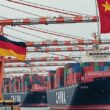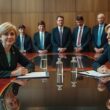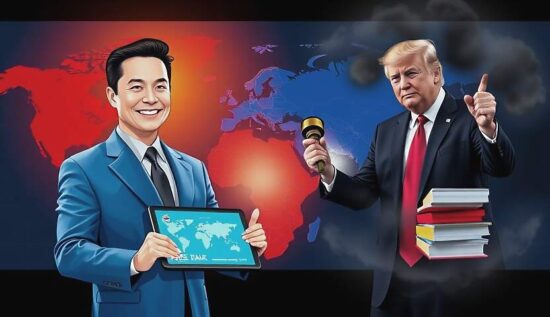Elon Musk, a US President’s Adviser, Unveils Vision for a Zoll-Free Transatlantic Trade Zone
In a surprise move, Elon Musk, a key advisor to the US President, has publicly expressed his opposition to the recent tariffs imposed by Donald Trump on EU goods and has advocated for a zero-tariff, transatlantic free trade zone. Musk made the remarks during a video address at the Italian Lega party’s congress in Florence, stressing the need for a duty-free trade relationship between the US and Europe.
“I hope we can move towards a zero-tariff situation with a free trade zone between Europe and North America” Musk said.
Musk’s vision for a closer economic cooperation extends beyond trade, also encompassing the free exchange of labor forces. This stance stands in sharp contrast to Trump’s protectionist policy, which has recently been met with international concern, as the introduction of tariffs on European imports has sparked a trade war.
Trump’s tariff policy, aimed at protecting American jobs and production capacities, has been met with warnings from economists that it could destabilize the global trade landscape and lead to long-term economic losses.
In contrast, Musk’s proposal for a zero-tariff free trade zone is seen as a solution that not only facilitates transatlantic trade but also could strengthen the economic potential of both regions in the long run.
Musk, known for his unconventional political positions, presented his vision for an open and cooperative economic policy in Florence, which found particular resonance with representatives of the Lega and other populist movements in Europe, including Viktor Orbán and Marine Le Pen. Their support could contribute to shifting the transatlantic trade talks in a new direction and creating a broader political basis for Musk’s proposals.
A divergence from Trump’s course?
Interestingly, Musk is increasingly taking a stance that diverges from Trump’s in economic policy matters. Although he is a key advisor to the US President, Musk’s views on trade and labor exchange differ significantly from Trump’s. While Trump sees tariffs as necessary to strengthen domestic production, Musk advocates for a free market policy without trade barriers. This divergence could lead to tensions between the two, as Musk has also shown a willingness to set his own course in political matters in the past.





